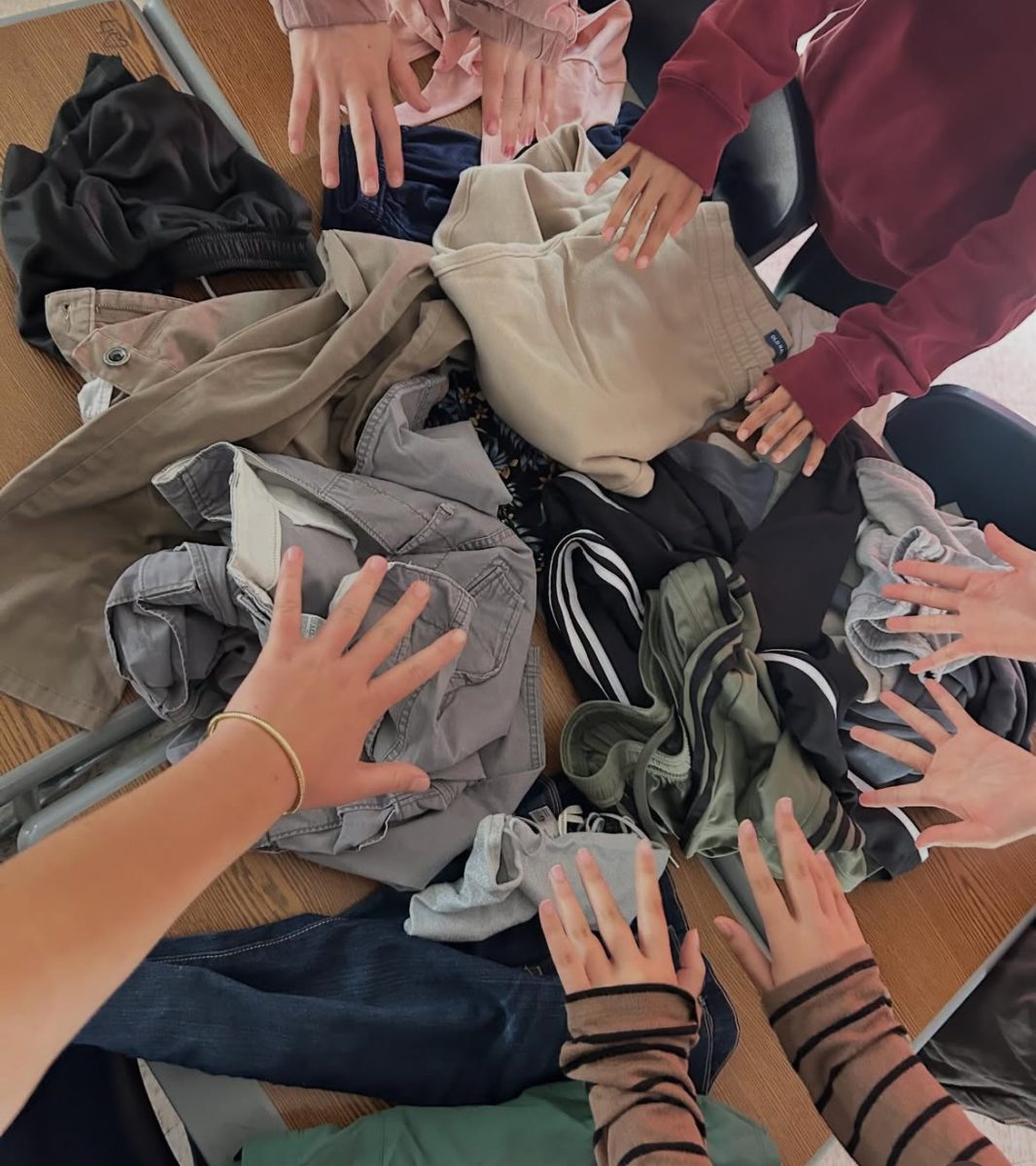Did you know that most fast fashion pieces fall apart after only 10 wears? The Sustainable Fashion Club is ready to flip the script. Run by juniors Greta Jackson, Evelyn Goddard, and Frankey Gebhard, the club aims to raise environmental awareness through encouraging mindful consumption and viable fashion practices. “We are excited to educate and make change this year,” President Greta Jackson said.
In a world that is governed by fast fashion and rising clothing waste, the Sustainable Fashion Club is proving that style doesn’t have to come at a price. The club is determined to teach students about how the fashion industry is adversely affecting the environment. Through biannual clothing drives and upcycling workshops, they are on a mission to create a community that values style without sacrificing the planet.
“We recently gathered clothes from people, like neighbors and community members for our clothing drive. We plan to sell them in a couple of months.” Treasurer Evelyn Goddard said.
This year, the club is introducing hands-on events called upcycling workshops. These involve taking old clothing items like T-shirts, socks, or fabric scraps, and turning them into something new. You’ll have the chance to pick up some basic sewing skills, like how to stitch together a cute stuffed animal or craft a reusable tote bag, while giving new life to materials that might have otherwise ended up in the trash.
“It’s a super fun community event, and a way to spread awareness while teaching people cool new skills.” Jackson said.
As social media continues to grow more popular, trends are moving faster than ever. This is creating enormous pressure for people, especially high schoolers, to either keep up, or risk feeling outdated. According to UniformMarket, Young people, particularly those 18 to 24 years old, are the most frequent consumers of fast fashion, spending over $150 billion in 2025, a nearly 10% jump since 2024.
“Fast fashion seems like a great option. It’s cheap and accessible,” Jackson said. “But it’s also really harmful to the planet and generates a ton of waste.”
According to Earth.org, “the fast fashion industry is responsible for about 10% of global carbon emissions—more than all international flights and maritime shipping combined.” Unfortunately, these numbers often go overlooked by consumers.
So, how can you help their mission? You can give your clothes directly to the club, where they will be sold in clothing drives or used in upcycling workshops.
“We’re also partnering with local nonprofits, like Homeward Bound of Marin and Ritter Center to provide even more places where people can give,” said Goddard.
Together, Jackson, Goddard, and Gebhard hope to foster a community that is aware of fast fashion’s detrimental impacts on the environment. “We aim to teach reducing, reusing, and recycling textiles through donations and upcycling,” Goddard said.
Through sustainability, education, and outreach, The Sustainable Fashion Club is proving that style doesn’t have to come at the planet’s expense.


